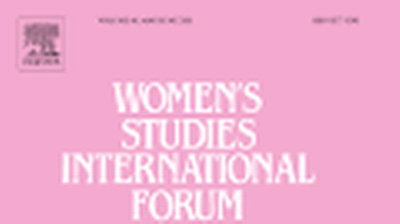The ways of maize. Food, poverty, policy and the politics of meaning among the Chewa of Malawi
This ethnographically grounded study of Chewa people’s foodways traces the involvement of the Chewa people in global development politics and policy processes. With the aim of understanding how development interventionist policies affect or are affected by Chewa people’s way of life, central to this thesis is the place given to Chewa people’s interests, values and meanings over the course of these policy processes. More specifically, an analysis of how new dimensions and tensions are brought about through the interaction of global and local contexts is at the very core of the arguments presented here.
Maize is placed at the centre of this ethnographically grounded research work due to its centrality in the Malawian context. It occurred to me during my fieldwork that maize was both present in many arenas of social life and best articulated the meanings, values and interests of specific groups. One reason for this is that while there are regional food preferences in Malawi, maize remains central, particularly among the Chewa people on whom the thesis is based. Because of its significance, maize is placed at the core of food and ‘poverty’ policy processes and it is also deeply embedded in the different aspects of Chewa way of life – all of which contributes to making maize a politicised crop within and beyond Malawian power relations.
Taking this context as its starting point, this thesis specifies that standardised policy concepts such as ‘food security’, ‘poverty’ and ‘the poor’ are usually constructed at forums that are often dismissive of local people’s interests, values and meanings, as well as of their potential to contribute towards solving their own problems. Often these concepts are thinly conceived, yet they are used in policy models or frameworks that aim to solve problems in diverse and complex social settings. Rather than alleviating ‘poverty’ or hunger, these standardised policy models conceal power relations that exacerbate already precarious situations by further marginalising people who have been promised that their lives will improve under such interventionist policy measures.
How such standardised policy models are understood and responded to locally tells us a lot about why ‘poverty’ and ‘food insecurity’ persist in a country like Malawi, despite huge aid investments and the implementation of many national and international development, ‘food security’ and ‘poverty’ eradication programmes. Moving the issue of power relations and the discursive aspect of policy models into the food equation helps us to reveal empirical insights into how and to what extent local people accept, reject, contest or manipulate the dominant policy models. In arguing that power relations are integral to the ways in which food (specifically maize) is used, produced, consumed and distributed, this thesis uncovers the politics of meaning, values and interests that surround maize production, consumption and distribution among the Chewa of Malawi.
Hence, the first contribution of this research is based on the fact that while Malawi is clearly at a crossroads of different models relating to ‘poverty’ and food issues – at local, national and global levels – only a few ethnographic studies have focused on this complex articulation of models and meanings in local contexts. In attempting to analyse this complex interaction of models and local meanings, this research makes a scholarly contribution to this undertheorised topic not only in anthropology but also in development studies. As a second contribution, the present work contributes to an on-going debate about the ways in which food is vital in sustaining life beyond the physiological context in which it is often discussed and studied. Thus, in following the ways in which maize is used, produced, prepared, consumed and distributed among the Chewa, this thesis also shows how food constitutes values, meanings and relationships that are pertinent to a specific group of people. By empirically bringing together food issues that have previously been theorised by other scholars as distinct aspects of food, this thesis seeks to broaden the theorisation of food issues within food studies.
http://bora.uib.no/handle/1956/6033

